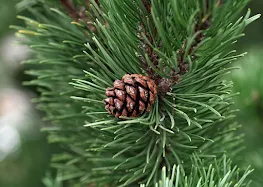Black locust, also known as false acacia or white locust, is a deciduous tree from the pea family (Fabaceae). Native to North America, it is now widespread globally as an ornamental, honey-producing, and useful plant. Its fragrant white flowers and medicinal properties make it valuable in both landscaping and natural medicine.
Characteristics
- Appearance: The tree grows between 10 and 25 meters tall. It has pinnate leaves composed of 9–19 elliptical leaflets. The flowers are white or cream-colored, arranged in hanging clusters. The fruit is a flat pod.
- Habitat: Prefers dry, sandy, nutrient-poor soils and is often found along roadsides and disturbed areas.
- Blooming period: May to June.
Medicinal Properties
Black locust flowers are primarily used in herbal medicine for their mild and soothing effects. They contain flavonoids, glycosides, essential oils, and mineral salts.
- Calming effects: Helps reduce stress, nervous tension, and insomnia.
- Digestive aid: Eases heartburn and regulates stomach function.
- Pain relief: Alleviates headaches and minor aches.
- Honey production: Its flowers are a significant nectar source for bees, producing high-quality honey.
Uses in Natural Medicine
- Infusions: For calming and digestive issues.
- Baths: To relieve stress and promote relaxation.
- Tinctures: For pain relief and as a digestive tonic.
Recipe: Locust Flower Tincture
- Ingredients:
- 1 cup of fresh black locust flowers,
- 250 ml of 40% alcohol (vodka or brandy).
- Preparation:
- Place the flowers in a glass jar and cover them with alcohol.
- Seal the jar and let it sit in a dark, cool place for 2–3 weeks, shaking it gently every few days.
- Strain the liquid into a dark glass bottle.
- Usage: Take 10–15 drops diluted in water, up to 3 times daily, for digestive issues or mild pain.
Cultivation and Ecological Role
Black locust is easy to grow, tolerates poor soils and drought, and enriches the soil with nitrogen through its symbiosis with nitrogen-fixing bacteria. It is valued as an ornamental and honey plant but is considered invasive in some regions.
The black locust is a versatile plant with uses ranging from ornamental landscaping to herbal remedies. Its fragrant flowers are a boon for pollinators, and its medicinal qualities make it a valuable addition to natural remedies.















